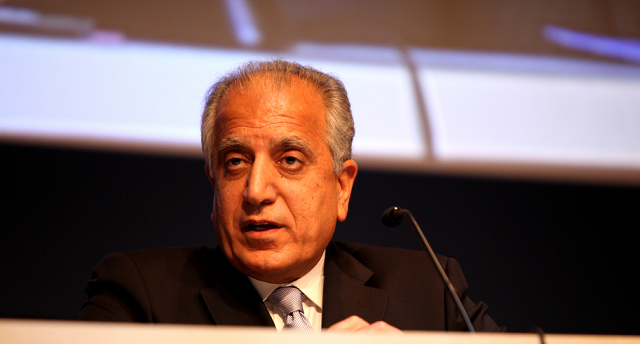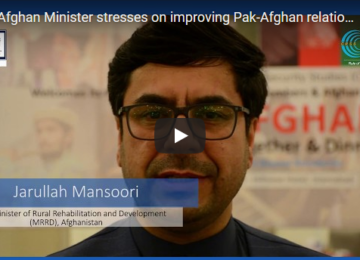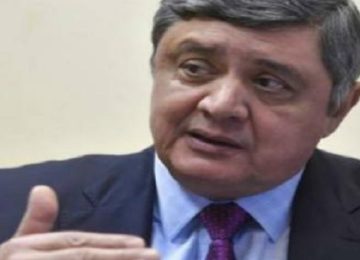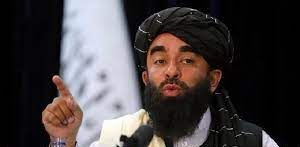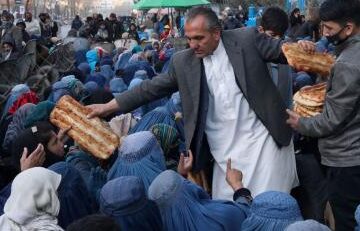Mike Pompeo’s possible naming of the 67-year-old former US diplomat Zalmay Khalilzad as the US special envoy on Afghanistan has generated mixed feelings in regional political circles. Afghan-born Republican foreign policy veteran Khalilzad – who previously served as the US Ambassador to the United Nations, Afghanistan, and Iraq, under George W. Bush’s administration between 2003 and 2009 – is known for his longstanding bias against Pakistan; a major, and also indispensable, stakeholder in the resolution of the Afghan conflict. His likely appointment comes as the US military commanders acknowledge a stalemate in the war. This acknowledgement followed by the appointment of Khalilzad indicates that the United States is serious about talks to end the 17 year long war in Afghanistan.
Khalilzad’s possible appointment raises several questions regarding his ability to be a fair interlocutor in the Afghan peace process. His past performance is highlighted by a barrage of allegations leveled against Pakistan in his articles, interviews with the media, political autobiography, as well as on his Twitter account.
In an interview with the Afghan TOLO News on December 07, 2015, Khalilzad termed Pakistan as the ‘capital’ of terrorism, alleging that the country was providing refuge to extremist groups; the Taliban and the Haqqani Network. In another interview with TOLO News, on July 13, 2016, he recommended that Pakistan should be listed as a ‘state sponsor of terrorism’, accusing the country of using terror proxies contributing to global Islamic extremism.
In his autobiography, The Envoy: From Kabul to the White House, My Journey Through a Turbulent World (2016), Khalilzad framed allegations against the intelligence agency of Pakistan (the ISI) for allowing Pakistan’s territory to be used by the Taliban for terrorist activities.
Continuing his stream of unfounded allegations targeting Pakistan, the former diplomat alleged, on January 04, 2018, in the National Herald that the key reason for the persistence of the Taliban in Afghanistan was Pakistan’s proxy war policy and encouraged the United States to apply additional pressure to achieve its aims with the country.
Even recently, commenting on Pakistan’s newly appointed Prime Minister Imran Khan’s victory speech, Khalilzad did not shy away from re-asserting the accusation that Pakistan’s actual policy was to support the Taliban and the extremist groups in Afghanistan.
The former diplomat’s Twitter account, too, is not without his spiteful statements aimed at defaming Pakistan. Just last month, in a tweet, the former envoy encouraged the US Secretary of State, Mike Pompeo, for warning against IMF bailout of Pakistan, falsely claiming that the country’s alleged support for terrorists had led to the death of Americans and others.
Secretary Pompeo is right by warning against IMF bailout for #Pakistan given its continued support for terrorists who kill Americans and others. The other problem with a bailout is that it aids our global rival, #China. @realDonaldTrump #Afghanistan https://t.co/ENltgsOMOr
— Zalmay Khalilzad (@realZalmayMK) July 31, 2018
His tweets continue to baselessly point fingers at Pakistan, including its military and security establishment, for any terrorist attacks that occur in Afghanistan; in one tweet, even going to the extent of constructing the false notion that Daesh (ISIS/IS) in Afghanistan was Pakistan’s creation.
Did #Pakistan create the Daesh terrorist threat in #Afghanistan to make its Taliban proxies look moderate by comparison? Both groups are terrorists. #India @RealDonaldTrump https://t.co/9RYz0Fv09W
— Zalmay Khalilzad (@realZalmayMK) February 3, 2018
A further analysis of his tweets suggests a similar pattern.
#Pakistan Taliban leader Fazullah was killed with Afghanistan’s critical assistance. But conversely what does #Pakistan do? Provide sanctuary and direct support for #Afghanistan Taliban leaders. Unacceptable.
— Zalmay Khalilzad (@realZalmayMK) June 16, 2018
#Pakistan military’s response to President Trump’s Tweet: more of the same indicating that the double game continues. Now the ball is in our court. Need to start imposing serious costs on Pakistani military.@realDonaldTrump #Afghanistan #Indiahttps://t.co/4OflEtMode
— Zalmay Khalilzad (@realZalmayMK) January 5, 2018
Another tweet claiming “Pakistan continues to push war & violence” further reflects the views Khalilzad would come to the table with, if appointed as the US special envoy.
To preclude more pressure & reduce its isolation, #Pakistan has signaled it will help start a peace process. This is tactical. No strategic change. Pakistan continues to push war & violence. @RealDonaldTrump https://t.co/pxsYc511g1
— Zalmay Khalilzad (@realZalmayMK) May 29, 2018
Keeping in view the spree of allegations that Khalilzad has persistently leveled at Pakistan, it is worth questioning Washington’s choice of his appointment as the US special envoy, and whether his views would leave any room for him to be a fair interlocutor in the peace process.
It also raises another major question; whether the US even wants to end the conflict in Afghanistan, which has, of late, experienced positivity in its relations with its neighbor, Pakistan. This positivity is evidenced in the signing of the Afghanistan-Pakistan Action Plan for Peace and Solidarity (APAPPS), operationalizing of the five working groups for cooperation in different fields, the recent exchange visits of top officials for implementation of the policy framework, and Ghani’s visit invitation to Pakistan’s newly appointed PM Imran Khan last month.
Pakistan and Afghanistan may have finally embarked on the road to positive relations. However, the US appointment of Khalilzad, as the new interlocutor, so far appears to be a potential spoiler in the process.
The author Sitwat Waqar Bokhari is a Research Fellow at the Center for Research and Security Studies (CRSS) and Programme Consultant for CRSS’ sister organization, Afghan Studies Center (ASC). She tweets @SitwatWB
© Center for Research and Security Studies (CRSS) and Afghan Studies Center (ASC), Islamabad.



